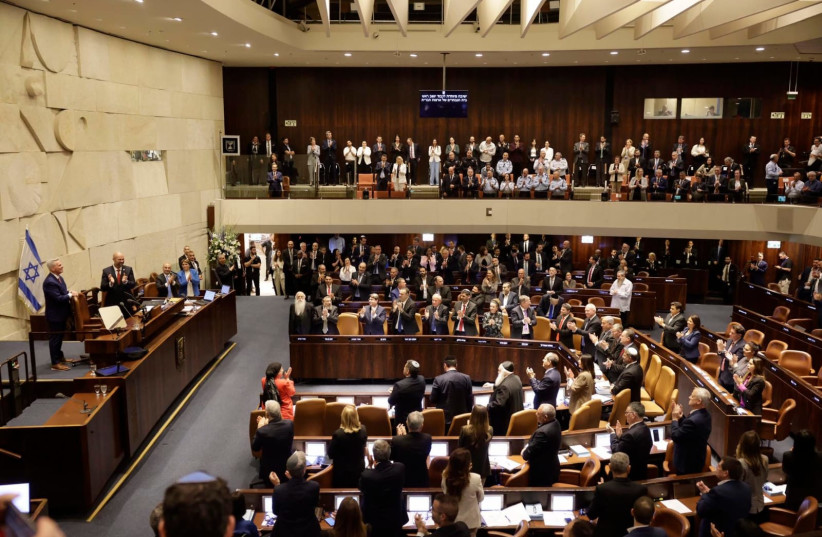Israel’s government has yet to lay a renewed budget for the year of 2024 despite a January 20 deadline required by the quasi-constitutional Basic Law: The State Economy, and thus is acting in violation of the law, Finance Minister Bezalel Smotrich admitted in the Knesset plenum on Wednesday.
The finance minister apologized, saying that the budget would be brought to the Knesset “soon.” The government approved a proposal for the budget already on January 15 following a 24-hour marathon debate and many last-minute changes. Smotrich claimed on Monday that the delay was due to a methodical review to ensure that all of the changes are inserted properly.
However, opposition Knesset members claimed that the delay is due to an attempt to insert additional changes in the budget, namely, to insert approximately NIS 6 billion of “coalition funds” into the budget itself, and thus make them “immune” to future changes. Coalition funds are public funds earmarked for political agreements and have been the focus of public criticism, as a large portion was allocated to funding for haredi school systems, some of which do not teach core secular studies, as well as to what some claim are “sectorial” demands such as funding for settlements.
The issue came up in the Knesset plenum on Wednesday during debate over two law proposals, both by MKs from the Labor party. The first, which was introduced by MK Efrat Rayten, aimed to abolish what she claimed were seven unnecessary government ministries, whose budgets are estimated at one and a half billion shekels, and to divert their budgets to the war effort.

The second bill, by MK Naama Lazimi, aimed to prohibit the use of coalition funds during wartime, and their reallocation to the war effort. This law’s intention is “to fight public corruption and above all to ensure that all citizens of the country receive what they deserve.”
The Basic Law on the annual budget
Both bills were struck down by the coalition and did not pass the plenum vote.
Israel’s Basic Law: The State Economy requires that the Knesset pass a new budget for the year 2024 since expenditures due to the war with Hamas made the initial 2024 budget irrelevant. For example, the initial 2024 budget, which passed into law in May, included a 1.35% budget deficit – but according to the new proposal, that number will jump to 6.6%.
The Basic Law required that the government place a renewed budget proposal on the Knesset floor by December 1. The government failed to meet that deadline, and on December 17 retroactively amended the law so that in “extraordinary and unexpected” circumstances it would have an extra 50 days after December 1, meaning until January 20, to place the renewed proposal before the Knesset. However, the government did not meet this deadline either.
If by February 19 the renewed proposal does not pass into law, the government will face an automatic budget cut in all ministries. This cut could reach an aggregate sum of nearly NIS 70 billion, thus severely harming the government’s ability to provide essential services. However, the law requires a minimum of 30 days to debate the budget in the Knesset – and therefore, if the law is not changed, the government does not have enough time to pass the budget before the automatic cut. It is not clear how the government intends to proceed.
A spokesperson for Smotrich said that the finance minister had initiated a second change to the law to change the deadline, but that the attorney-general advised him not to do so, as swift changes to Basic Laws harm their constitutional status.
